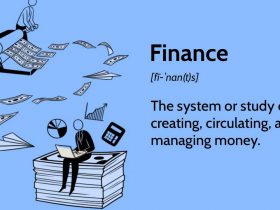Do you have extra space or a nice backyard? Beat inflation and put it to work earning rental income for retirement or other expenses.
How? Marketplace websites Neighbor and Peerspace make putting up listings for storage spaces or event hosting simple.
Property owners from retirees to commercial landlords are getting in on the action. It’s all about making passive income from unused or underused spaces, without in-home renters.
“To date, I’ve made over $10,000 off of Neighbor,” said TJ Lokboj, the landlord of a fourplex outside of Salt Lake City. Neighbor is a nationwide online storage marketplace.
“I just collect checks every month and put them in my kids’ education fund. It’s an automated and passive way to earn income,” without capital improvements or maintenance, said Lokboj.
“Some people are earning $20,000 to $40,000 a year,” with Neighbor’s service, said Joseph Woodbury, the company’s co-founder and CEO.
IBD Newsletters
Get exclusive IBD analysis and actionable news daily.
IBD Newsletters
Get exclusive IBD analysis and actionable news daily.
Please enter a valid email address
Please select a newsletter
Get these newsletters delivered to your inbox & more info about our products & services. Privacy Policy & Terms of Use
Thank You!
You will now receive IBD Newsletters
Something Went Wrong!
Please contact customer service
1. Rental Income: Be A Storage Landlord
Rental spaces on Neighbor run the gamut. Listings include parking areas, garages, sheds and barns. Even churches have become storage landlords. Goods stored include RVs, boats, seasonal items, and all kinds of household goods.
Founded five years ago, Neighbor has raised $65 million in funding, says Woodbury. Home and business owners now list storage spaces in all 50 states.
The draw to renters? Being able to store their items in neighborhoods near them and in a potentially more secure location. “One in 10 commercial storage facilities is broken into every year,” said Woodbury.
Neighbor insures homeowners who rent spaces for up to $1 million for host liability and they have the right to inspect whatever’s stored for safety (no fireworks, flammables, etc.).
The host insurance is included in Neighbor’s service fee, which gets added on to a renter’s storage contract. The fees vary depending on the rent charged. Renters can also buy insurance for their stored goods from Neighbor.
Woodbury says the lack of affordable housing across the country is driving the need for storage, as people inhabit smaller spaces. Plus inflation has pushed homeowners to seek innovative ways to earn income to cover rising costs.
“Prices have been going up and now interest rates are going up,” said Woodbury. “Middle income households are desperate to earn additional income.”
2. Host Events
Peerspace is another online marketplace that enables homeowners, offices and galleries to rent their spaces for events, including parties, meetings and retreats. Producers also use the site to book film and photo shoot locations.
Launched in February 2014, Peerspace is also venture capital backed and is in “35 major metro areas across the U.S.,” said Matt Bendett, co-founder and senior vice president of global operations.
Bendett says it launched its marketplace in the U.K. and Canada last year. This year, it’s entering Europe and Australia. More than 14,000 residential spaces are now on the platform.
With Peerspace, “Hosts can maximize the usability of their spaces” by renting them for “short-term activities,” said Bendett. A rental fee of 15% comes out of the event booking cost and covers insurance for the host property.
3. Build An Accessory Dwelling Unit
If you’re more ambitious in your goal to monetize your property, consider building an accessory dwelling unit (ADU) or converting a garage into an ADU. Due to the dearth of affordable housing, cities across the country have made it easier to get permits for ADUs.
California is actively pushing cities to permit and approve ADUs.
Even a small unit in a desirable location can bring in thousands of dollars in rent. And some homeowners are opting to live in their ADUs as they reach retirement and rent out their homes to earn even more income.
4. Lease Land Or Buildings
Not interested in a construction project? If you have land, perhaps you could lease it as a location for a renter’s tiny house? Of if you have an unused barn or other outbuilding, it could be tapped for equipment storage or parties (see No. 1 and No. 2 above).
A lawyer can draft a contract for tiny-house parking or an outbuilding lease.
Lastly, homeowners should make sure all rental activities comply with local regulations and codes. And remember any rental income is taxable and must be declared on tax filings.














Leave a Reply